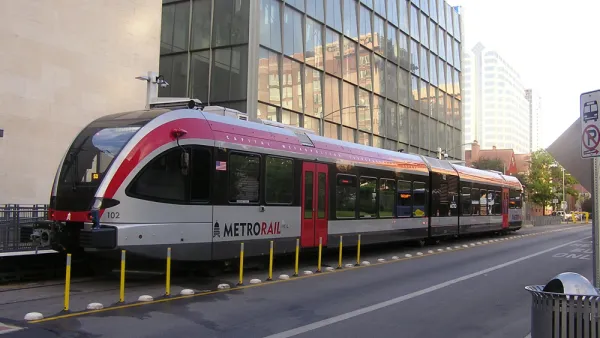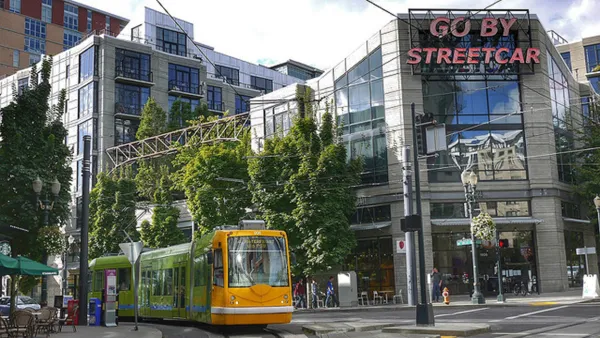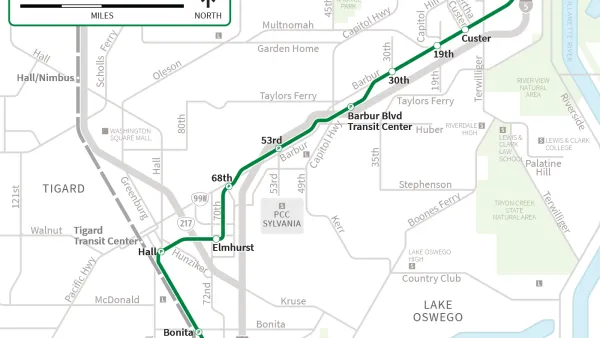In a pair of articles, Jonathan Maus reports on the final moments of the SW Corridor Light Rail Project, as project supporters deals with a loss at the ballot box.
"The project was set to receive $975 million from the Metro funding measure that failed at the ballot box on November 3rd. Without the money, there’s no path forward for the project and officials say it will be put to bed until further notice," writes Maus in a recap of the final meeting of the SW Corridor Light Rail Project Steering Committee, comprising elected officials from around the region.
A separate article by Maus recaps the final meeting of the Southwest Corridor Light Rail Community Advisory Committee , comprising citizen volunteers.
According to information attributed to Tyler Frisbee, Metro’s policy and federal affairs policy manager, Measure 26-218 failed to receive voter support in all three of the counties where the ballot measure appeared. "We had stronger support along areas where some of the major corridors were. So, stronger support out along TV Highway. Frankly, not great support from Southwest Portland," says Frisbee in the article.
Maus offers insight into how voter support failed to materialize, even in the part of the region the project was supposed to benefit:
After contacting several SW Portland transportation activists, I got the sense that the light rail project never had a strong, homegrown constituency. SW Portland has been underinvested in for decades. It has the least sidewalk coverage of any Neighborhood Coalition in the city — over 65% of its arterials and collector streets lack sidewalks — and its stormwater infrastructure is inadequate to support improving that network. It doesn’t have a connected bike network, large swaths of southwest have no bicycling facilities at all.
The Southwest Corridor Light Rail plan would have added 11 miles of light rail and 13 stations between Downtown Portland and Bridgeport Village, making the trip in 30 minutes.
FULL STORY: TriMet GM stays positive as reality of SW Corridor project loss settles in

Analysis: Cybertruck Fatality Rate Far Exceeds That of Ford Pinto
The Tesla Cybertruck was recalled seven times last year.

National Parks Layoffs Will Cause Communities to Lose Billions
Thousands of essential park workers were laid off this week, just before the busy spring break season.

Retro-silient?: America’s First “Eco-burb,” The Woodlands Turns 50
A master-planned community north of Houston offers lessons on green infrastructure and resilient design, but falls short of its founder’s lofty affordability and walkability goals.

Test News Post 1
This is a summary

Analysis: Cybertruck Fatality Rate Far Exceeds That of Ford Pinto
The Tesla Cybertruck was recalled seven times last year.

Test News Headline 46
Test for the image on the front page.
Urban Design for Planners 1: Software Tools
This six-course series explores essential urban design concepts using open source software and equips planners with the tools they need to participate fully in the urban design process.
Planning for Universal Design
Learn the tools for implementing Universal Design in planning regulations.
EMC Planning Group, Inc.
Planetizen
Planetizen
Mpact (formerly Rail~Volution)
Great Falls Development Authority, Inc.
HUDs Office of Policy Development and Research
NYU Wagner Graduate School of Public Service




























